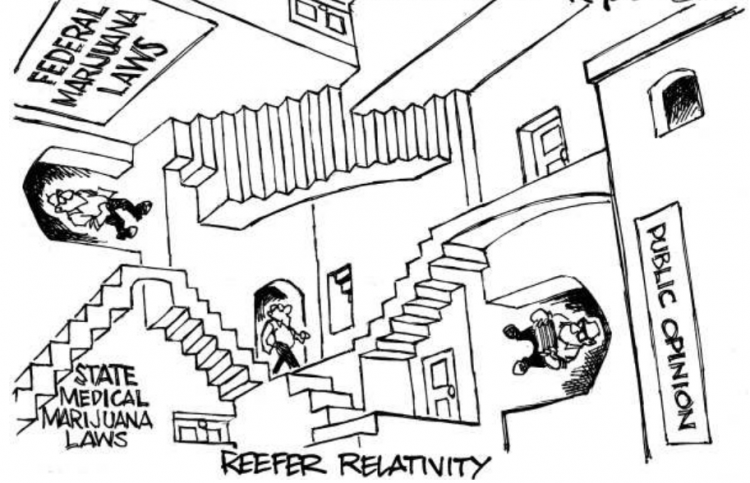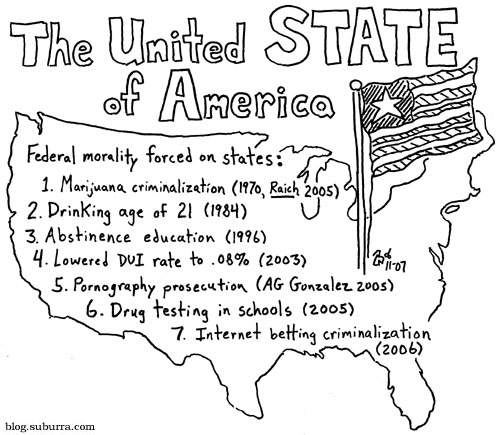In an era of a do-nothing national government and a lack of citizen potency, it’s time to cultivate state power.

While sitting in my local bar, screening the debate with self-proclaimed elitist-centrists, Obama supporters, conflicted army members and Green Party diehards, I can’t help but feel that the federal government is completely inaccessible to us Six-pack Joes. (Green party candidates Jill Stein and Cheri Honkala sit handcuffed somewhere nearby the debate). On this bar stool, with the cover split and ancient stuffing exposed, I realize that, nationally, my vote does not count.
Hofstra University’s auditorium is filled with political advisors, family members and a few questioners (see: average citizens) strategically placed throughout the otherwise influential crowd (Stein and Honkala are handcuffed to chairs inside a makeshift detention center until the debate proceedings have long come to an end, approx. eight hours). The debate follows the usual course of stock dialogue: jobs, the pursuit of oil, the plight of women, false accusations and empty promises. A repetition of the debates I’ve endured for my quarter century of existence. Nothing changes.
The estranged relationship between the federal branches and the average citizen is broadening. Established avenues for people to implement change are clogged by corporate cases and lobbyists. There’s no quarter for the citizenship addressing an actual issue of national import. Sure, public opinion was designed to pressure federal decision-making, but public opinion is too malleable to establish itself as a dependable representation of the public.
Example: American citizens became more concerned about climate change and began going “green.” Corporations quickly preyed upon the surging green market. Consumption of green goods increased. Instead of collectively working to curb pollution and climate change, people were able to buy into a hip, green identity. Despite the national preoccupation with climate change and pollution, America is no closer to influencing climate for the better than we were 10 years ago. The earth and its inhabitants continue to suffer. Consider this: our current president openly bragged about oil production in a televised debate. In light of America going green, shouldn’t our national figures be pushing to end our dependence on oil?

Public opinion is a waning vehicle for personal expression. So how do we go about national change?
I’m going to borrow a phrase from Orwell’s 1984. The protagonist, Winston, concludes: “If there is hope, it lies in the proles.” For American citizens, if there is hope, it lies in the states. America is a multi-level government, where states and the federal government split or share specific powers. If we are to push cannabis legislation through (or any progressive measures, such as equal marriage and gay rights), the states must antagonize the federal status quo. It’s time for the American progressives to turn their political fixation from the national stage to state initiatives and elections. Our money goes further in the states, out votes bear more influence. It’s the last vehicle for possible national change.
If there is any hope for change, it resides in the power of the states.










